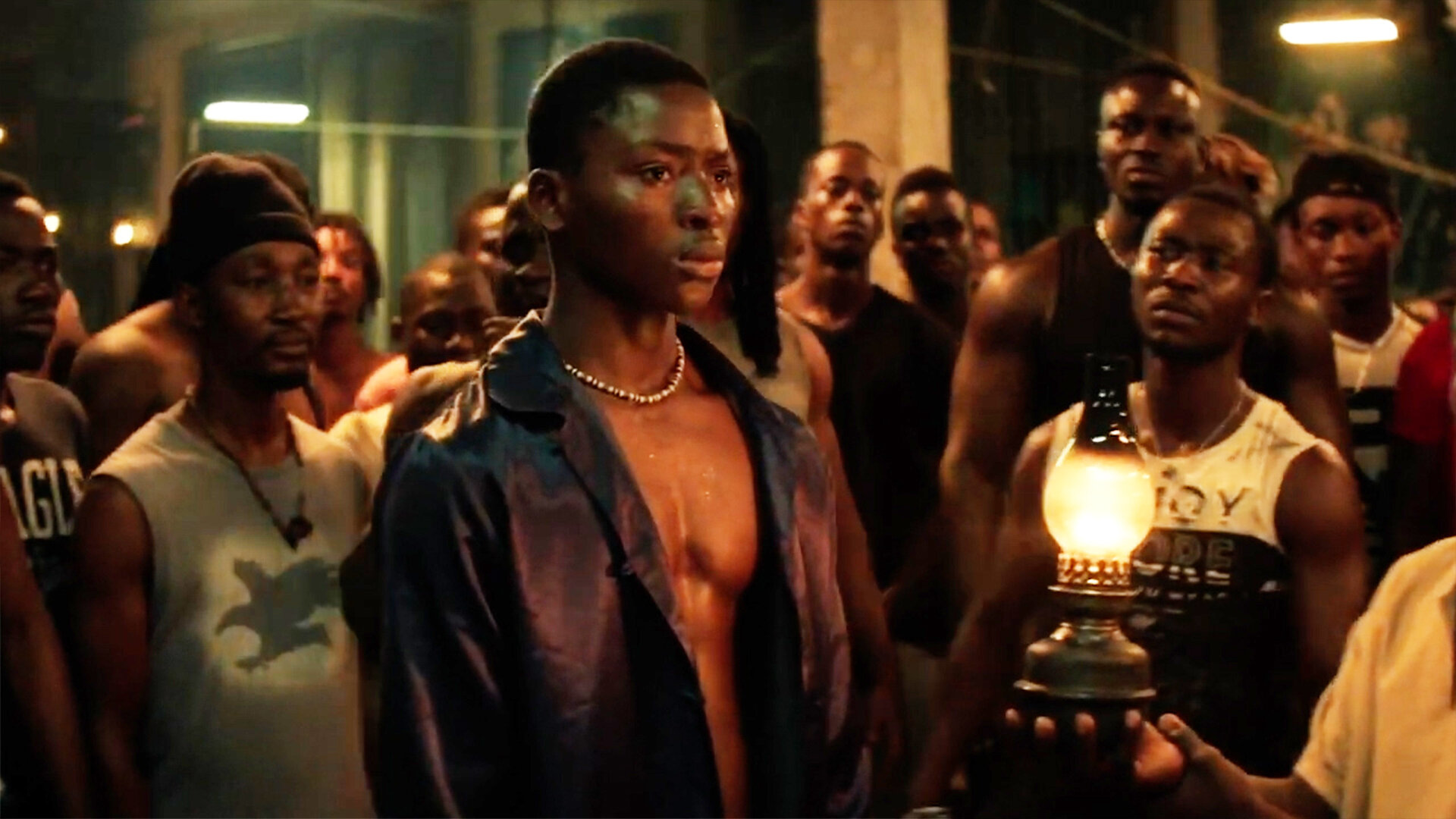NIGHT OF THE KINGS: FILM REVIEW
Philippe Lacôte’s harrowing and suspenseful Night of the Kings is a story that revolves around the importance of storytelling itself. The Ivory Coast film interweaves rituals and fantasy to offer an escape from reality, both for the prisoners in the film and its viewers.
Night of the Kings is primarily set in the infamous La MACA, a prison in the Ivorian capital of Abidjan that is ruled by the prisoners themselves. Its central character is the prison’s newest, unassuming member, who is dubbed as “Roman” (Bakary Koné). By the time Roman arrives at La MACA, its ruler, Blackbeard (Steve Tientcheu), is beginning to lose grasp of his reign — his commands are followed by a deep breath into an oxygen tank and his slow dissent is preyed upon by those who want to step into power. Much too weak to fight, there’s only one thing Blackbeard can do before the next red moon: buy himself some time and end his reign on his own terms. How? By naming La MACA’s newest “storyteller” and invoking the prison’s storytelling ritual that comes at every rising red moon. Blackbeard assigns Roman the daunting task, but his position is much more serious than purely entertaining his fellow prisoners; if his story ends before the sun rises, his life will end too.
Although Lacôte effortlessly crafts the story of Night of the Kings, Roman struggles with crafting a story of his own. Knowing that his tale must extend throughout the night, Roman chooses to tell the story of his friend and notorious gang leader, Zama King. Although not much is known about Roman, he says he was one of Zama King’s lackees, who are known as the Microbes.
While Zama King’s story is surely engaging and filled with unexpected twists, Roman struggles to stand his ground the whole night. As Zama King’s tale nears its end, Roman attempts to buy time by jumping between scenes and promising his audience that he forgot a part of Zama King’s story and must retract. However, it’s quite obvious to his audience that Roman is manufacturing a narrative that does not exist and is no longer as compelling. This tension between time and story exists throughout the film, building suspense as it is unclear if Roman’s storytelling skills will result in his own death.
Although Zama King is a fantastical fable, its tale integrates the very real realities and history of the Ivory Coast — including the dethroning of President Laurent Gbagbo in 2011. Real footage of Gbagbo is spliced in between fictional recounts of Zama King’s story, as Lacôte carefully utilizes magical realism to revisit Cote d'Ivoire’s past. Even the prison setting is riddled with chaos — its inhabitants roam around the claustrophobic jungle, as if it is a kingdom they rule.
Initially, it is uncertain if the film will strictly stick to a realistic arc or border the line between fantasy and reality. However, eventually, it becomes clear that fantasy is not only welcomed in the narrative, but it is necessary. Zama King’s ultimate rise to power is depicted through a battle between him and his sister (the queen), where both hover in the clouds while casting spells on their weapons of choice. The prisoners themselves also take part in acting out Roman’s story, as if they are cast in his play, where Roman is the narrator, the floor of prison is the stage, and his audience members take on the roles of actors.
Night of the Kings uses high stakes and a magical, historical realism to highlight the importance of creativity and storytelling in keeping a community alive. Cote d'Ivoire’s historical roots are interwoven throughout, as the film’s viewer becomes just as entranced with Roman’s story and survival as his rowdy audience does.


